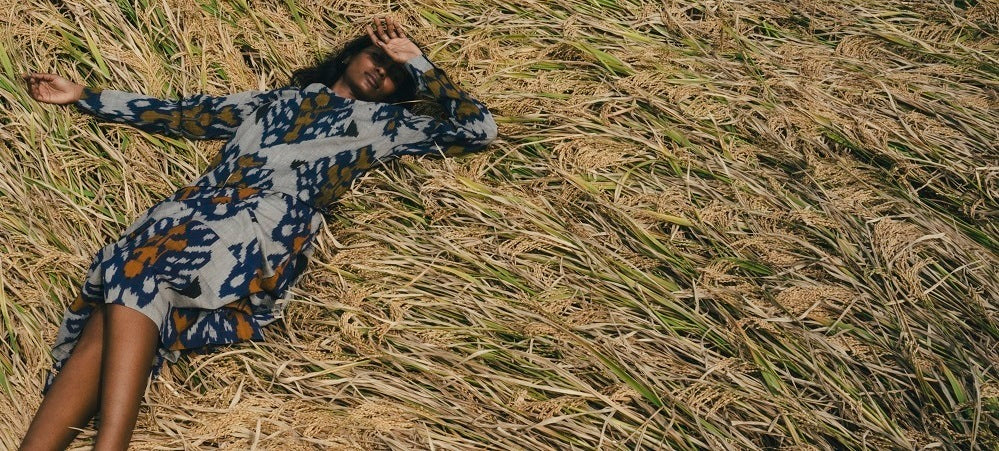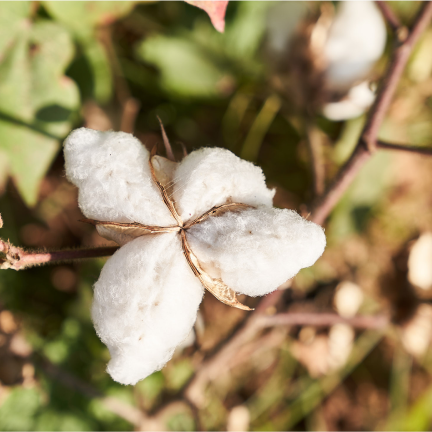The season from August to October in Tamil Nadu is called Kaar Kalam, which translates to monsoon season. The southwest monsoon winds start in mid-August, bringing heavy rains. The winds mark the end of the hot and dry Mudhuvenil Kaalam, or summer season, and usher in the wet and stormy season.
August is also a month of transition for the farm. The harvest begins during the final month of Mudhuvenil Kaalam. By the first rains of Kaar Kalaam, the farmers have finished harvesting the mature cotton and started preparing the fields for the next season.

Cows and other grazers roam the fields once the harvest concludes. They graze the cotton plants, help them decompose, and return each plant to the earth. They also aerate and compact the soil. The farmers gather whatever the cows don’t eat and add it to the compost pile. Both processes ensure that all the carbon and nutrients the plant has built up during the season will return to the soil. Then the farmers plant the fields with green manure crops such as sun hemp and dhaincha. These crops grow quickly, protect the soil from sun and wind, and recycle nutrients into the soil.
Farmers sow seeds during Puratasi from September 16- October 15. At the end of the previous season, the harvested cotton goes to the gin where the fiber is separated from the seed. The fiber goes to the spinning mill for its first step towards becoming fabric. The seeds come back to the farm for the next season. We use non-GMO seeds that are native to our soils called Surabhi Cotton. Before the farmers sow the seeds, they treat them in a natural, nutrition-dense mixture to promote germination then dry them in the sun for a day.

Planting the farm during Kaar Kalam requires a delicate dance with weather patterns. Seeds need wet soil to germinate, but too much water could wash the seeds away. The farmers wait for the forecast to be light rains and quickly plant during the window between the monsoon rains. As the rain pours down, the seeds germinate and transform into small cotton plants.
A few weeks after sowing the seeds, the farmers harvest the green manure, cycle it back into the soil, and add manure from the cows living on the farm to create an ideal environment for the young cotton plants. Everything on the farm is cyclical and each season the farmers support different cycles. Kaar Kalam is the season of nourishing and fostering the soil and plants to prepare the farm for a successful season ahead.

Towards the end of Kaar Kalam, the farm celebrates the Tamil festival of Ayudha Pooja. This festival celebrates the tools that help us every day. The farmers set up a pooja, a Hindu spiritual ritual, that blesses the tools on the farm. They gather their sickles, shovels, tractors, and any other tools to honor and show them gratitude. An act that is said to bring success and prosperity. In the Oshadi garment unit, they gather their scissors, sewing machines, irons, and other tools for the Ayudha Pooja.












